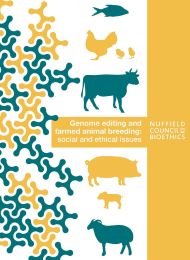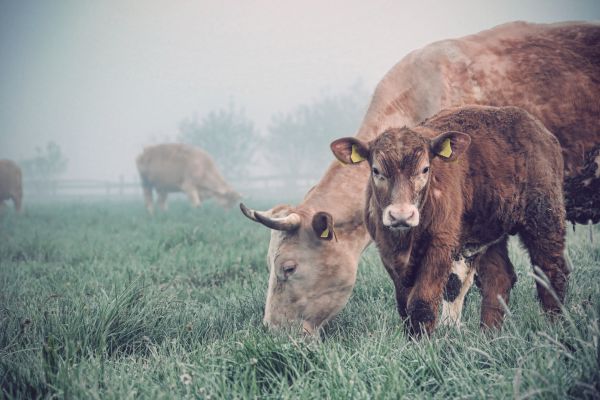Genome editing and farmed animal breeding: social and ethical issues
Report
Published 01/12/2021

Recommendations
See chapter 7 in the full report for a full list of recommendations.
The aim of our recommendations is to ensure that the potential applications of new breeding technologies help to address and not aggravate the societal challenges relating to our food and farming system. The introduction of new technologies into food and farming must be aligned with public and animal interests as part of an overall vision for a food and farming system of the future that supports, promotes and rewards sustainable farming and improved standards of animal health and welfare.
We make recommendations to the UK Government, animal breeders and developers, major food retailers and others involved in shaping the food and farming industries both in the UK and internationally.
Regulatory policy review
Any revision of the current regulatory regime for genetically modified organisms should be preceded by a thoroughgoing policy review that addresses the effects of any proposed change on the food and farming industry.
Public dialogue
The development of policy, law and regulation in relation to farmed animal breeding and the introduction of new breeding technologies, should be informed by public views.
Responsible breeding standards
All commercial breeders of farmed animals should adopt an explicit and recognised set of breeding standards, with independent oversight. In particular, these should seek to ensure that animals are not bred to enhance traits merely so that they may better endure conditions of poor welfare, or in ways that reduce their capacity to enjoy life.
Incentives for responsible breeding
Ways to encourage responsible breeding and the use of responsibly bred animals should be explored, for example through incentive payments to farmers associated with the use of animals with desirable characteristics.
Full value breeding indices
The use of breeding indices that reflect characteristics of animals that are of public or social as well as economic value should be explored as a possible regulatory measure. Commercial breed developers placing animals or animal reproductive materials on the market could be required to publish these indices.
Anticipatory governance of breeding
We propose a ‘traffic light’ system to assess the impact of breeding programmes on the lives of animals. Animals assessed to be in the ‘red’ category – where targeted breeding programmes have led to the production of animals with physiological traits that make it difficult for them to enjoy a good life – should not be used in commercial farming. This category might include, for example, fast-growing lines of broiler chicken. However, we envisage this approach working in an anticipatory way, to sound a warning when breeding is overreaching and to steer it towards more desirable outcomes. This system would apply to commercial breed developers and would need to be overseen by an independent authority.
We also recommend that an independent body should monitor the longitudinal development of breeding lines and report on these matters to the public authorities responsible for the oversight of farmed animal breeding.
Standard setting, monitoring, reporting, assessing
Public funding should be made available for independent research to develop, validate and integrate new measures and standards for on-farm welfare. Public funding should be provided to develop integrated systems to monitor, record and report conformity with these standards, and to support their wide diffusion and adoption on farms.
Food labelling
Labelling of foods containing animal products should include scientific advice on food safety, nutrition and health and provide access to traceable attributes of interest to consumers, which may include factors such as:
- breeding practices and technologies used
- the animal’s living conditions and diet
- region of origin
- the ways in which products are processed
Retail concordat
The UK Government should bring the major food retailers together to agree a pathway to ensuring that only products that come from animals that have been responsibly bred are offered for sale. The agreement should include a plan of how this will be achieved and overseen, including how it may be backed up by retailer (rather than product) accreditation.
Diet change
Public support, including funding, should be provided for initiatives to develop new food sources, make more just and effective use of existing ones, and to encourage and support voluntary changes in the people’s diet towards consuming animal products at sustainable levels and only when these are responsibly bred.

Share